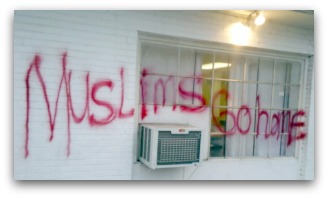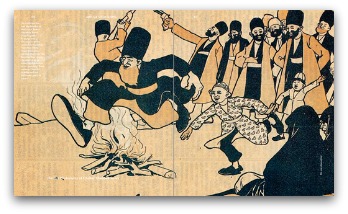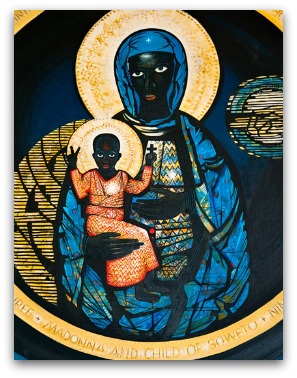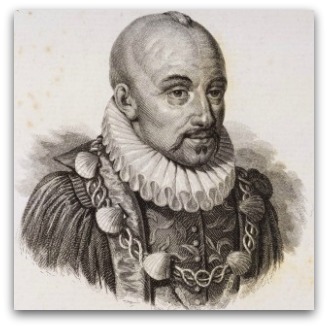Keywords: Education
There are more than 200 results, only the first 200 are displayed here.
-

ARTS AND CULTURE
- Nadine Rabah
- 16 November 2011
30 Comments
Last year, in year ten, we had a subject called 'Religion and Society'. During a lesson on Islam one of the girls said 'I hate Muslims, the world would be better without them.' I bit my lip, turned around and said 'I'm a Muslim.' Confused, she replied, 'But you're nice.'
READ MORE 
-

AUSTRALIA
- William Gourlay
- 18 October 2011
16 Comments
First appearing in 1906, the islamic periodical Molla Nasreddin displayed a sardonic and satirical take on women's rights, the role of religion in society and government, press freedom and education. The Arab Spring is the latest expression of this forestalled progressive sentiment.
READ MORE 
-

AUSTRALIA
- Brian Lawrence
- 10 October 2011
12 Comments
Former federal treasurer Peter Costello has revealed his fears that Tony Abbott's education in the collectivist principles of Catholic Social Teaching will frustrate the Coalition's ambitions for free market reform of workplace laws.
READ MORE 
-

INFORMATION
- Paul Beirne
- 13 September 2011
2 Comments
'Melbourne College of Divinity's application to become a specialised 'university of divinity' followed a four-year process that was thorough, comprehensive, consultative and detailed. It was by no means 'an act of faith'.' Paul Beirne, Dean of MCD, responds to Neil Ormerod's article 'Future bites for theological colleges'
READ MORE
-

EDUCATION
- Neil Ormerod
- 06 September 2011
11 Comments
The Tertiary Education Quality and Standards Agency will have real teeth, operating on a risk analysis basis with the power to deregister institutions. In this context Melbourne College of Divinity's historic bid to become a specialised 'university of divinity' is a leap of faith.
READ MORE 
-

AUSTRALIA
- Duncan Maclaren
- 31 August 2011
2 Comments
My last visit to South Africa was in 1989 when apartheid was in its death throes. The only difference between then and now in the gap between the poor (mostly black and so-called coloureds) and rich is that some blacks have become the 'nouveaux riches' of the new South Africa.
READ MORE 
-

RELIGION
- Frank Brennan
- 24 August 2011
10 Comments
Factors such as education, housing and connectedness have a big impact on health. There is no point telling an unemployed homeless person: 'Don't smoke, it's bad for you.' It's time the Government made a concerted effort to address the health needs of marginalised groups.
READ MORE 
-

RELIGION
- Frank Brennan
- 24 August 2011
1 Comment
'We need to break down the silo mentality between health, welfare and education. This exists in church agencies as much as elsewhere in society. We must be committed to providing first rate health care to our patients, but also to creating a more equal society.' Text from Frank Brennan's MercyCare Oration.
READ MORE
-

EDUCATION
- Fatima Measham
- 29 July 2011
7 Comments
The stoush over school ethics classes recalls the war in US schools over 'creation science' and its place in the curriculum. Christians should support programs that give students opportunities to think deeply about what it means to be a human among other humans.
READ MORE 
-

MARGARET DOOLEY AWARD
- Patrick McCabe
- 27 July 2011
11 Comments
Ignatius of Loyola and Michel de Montaigne both had privileged upbringings. But where Montaigne was committed to personal fulfillment, Loyala was devoted to service. I, too, had a privileged upbrining and education. I'm not yet sure whose example is best to follow.
READ MORE 
-

AUSTRALIA
- Andrew Hamilton
- 30 June 2011
21 Comments
Even if the Malaysian government guaranteed the security, sustenance and education of the asylum seekers, the human dignity of those found to be refugees would still be significantly infringed. They would be unable to enter Malaysian society equally, and they have no possibility of prompt acceptance into another society.
READ MORE 
-

ARTS AND CULTURE
- Tim Kroenert
- 16 June 2011
4 Comments
In May a German study revealed that one in three students in Berlin would consider sex work as a means of paying for their education. We've seen similar phenomena in Australia. In Sleeping Beauty, Lucy is a university student who finds herself drawn into working a bizarre niche in the sex industry.
READ MORE 